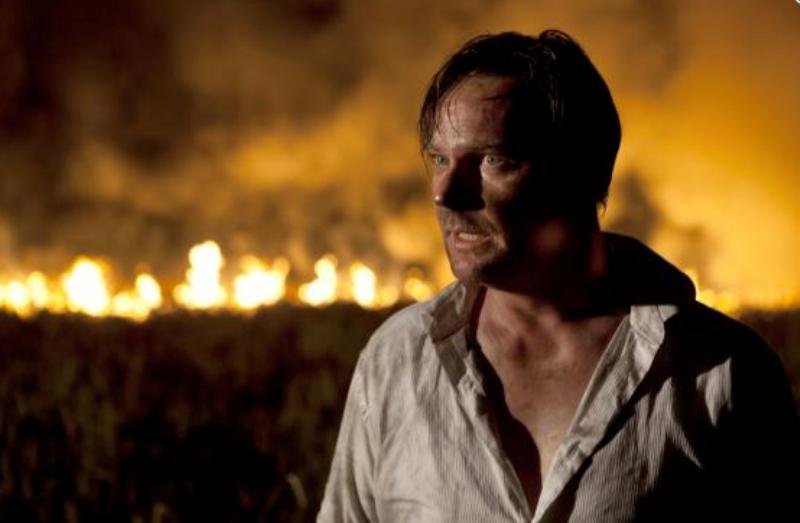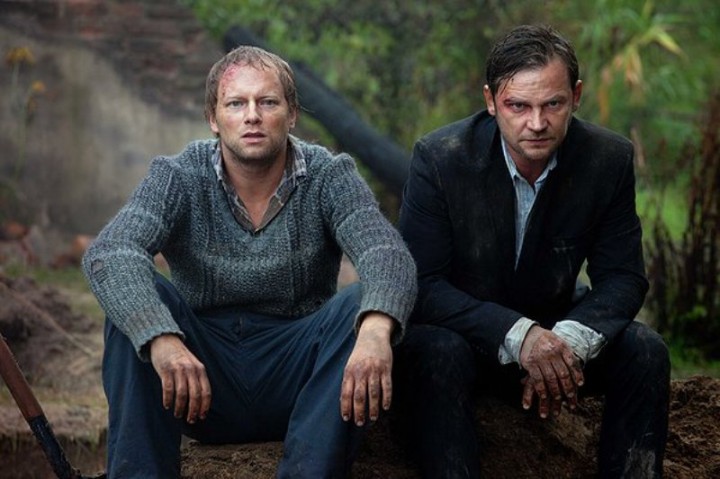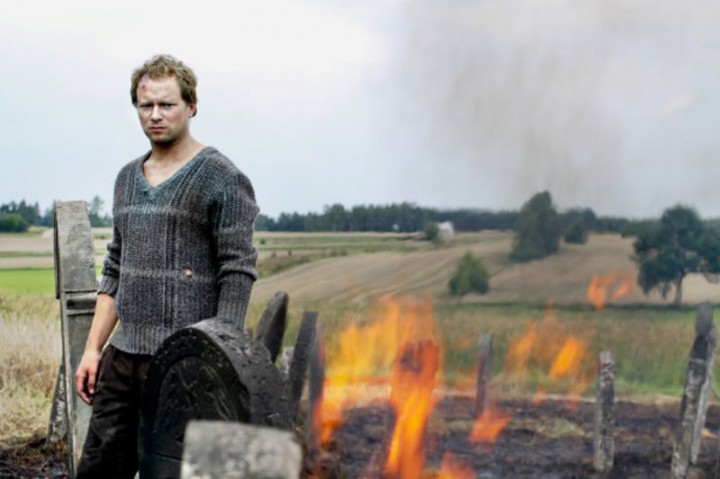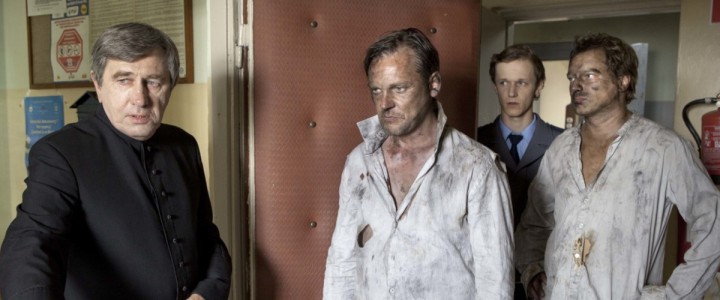Wladyslaw Pasikowski’s Aftermath is a startling, disturbing work that’s about a great deal more than Polish anti-Semitism, though that is the theoretical core issue of the story. But it’s also about human greed, opportunism, the herd mentality, and the basic insularity of so much of mankind. Yes, anti-Semitism is the key issue — specficially Polish anti-Semitism during and after WWII. Some have disputed its factual nature, but with any film that deals in material of this nature, that’s to be expected. I know it is based on the work of historian Jan T. Gross, whose book on the topic was similarly questioned. Pasikowski’s film mostly uses that history as a springboard to modern day mystery thriller of considerable power, but little subtlety or nuance. Those missing elements are what keeps the film from quite achieving greatness. But that doesn’t keep it from being very good indeed.
Since the film is structured as a mystery, it’s a difficult film to write about in detail beyond its basic set-up. Plus, revealing too much would also reduce the film’s impact. In essence, it’s the story of two Polish brothers — both in their late 30s or early 40s — in a small town in Poland. One brother has beem living in America — specifically, Chicago — for 20 years and has returned largely to get to the bottom of why his brother’s wife and children have fled to America to live with him. What he finds is that his brother has become obessed with diggimg up gravestones from a long-gone Jewish cemetery and place them in his wheatfield. Many of these had been used to pave a road (the ostensible reason for the ire of the populace). Some he purchased from people using them for walkways and other paving jobs. Others he just plain stole. His reason? He simply decided it wasn’t right. This is actually one of the film’s bigger structural problems, since, apart from driving the story his crise de conscience isn’t very persuasive. (There is little local interest in the Jews and even his Americanized brother is anti-Semitic.)
That to one side, the story of the film — with what happened being pieced together, the story of the source of the public anger, the increasingly grim revelations — is a strong one. Perhaps it’s strongest aspect is the way the returning brother becomes — partly out of stubbornness — becomes perhaps even more committed to uncover the truth than his brother. His growing obsession seems to become more pronounced the closer he comes to the idea that what he’s uncovering is not something he’ll be better off knowing. In many respect — especially, the growing sense of dread and the townsfolks; escalating attacks on the brothers — Aftermath might almost be a horror film. That, in fact, might be the key to its undeniable power.
The Asheville Jewish Film Festival and Fine Arts Theatre will screen Aftermath April 24 at 7 p.m. with an encore showing on Friday, April 25 at 1 p.m. Admission is $8.50.







Before you comment
The comments section is here to provide a platform for civil dialogue on the issues we face together as a local community. Xpress is committed to offering this platform for all voices, but when the tone of the discussion gets nasty or strays off topic, we believe many people choose not to participate. Xpress editors are determined to moderate comments to ensure a constructive interchange is maintained. All comments judged not to be in keeping with the spirit of civil discourse will be removed and repeat violators will be banned. See here for our terms of service. Thank you for being part of this effort to promote respectful discussion.